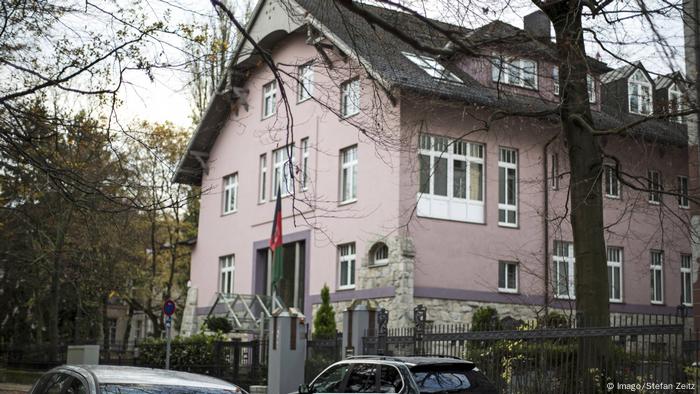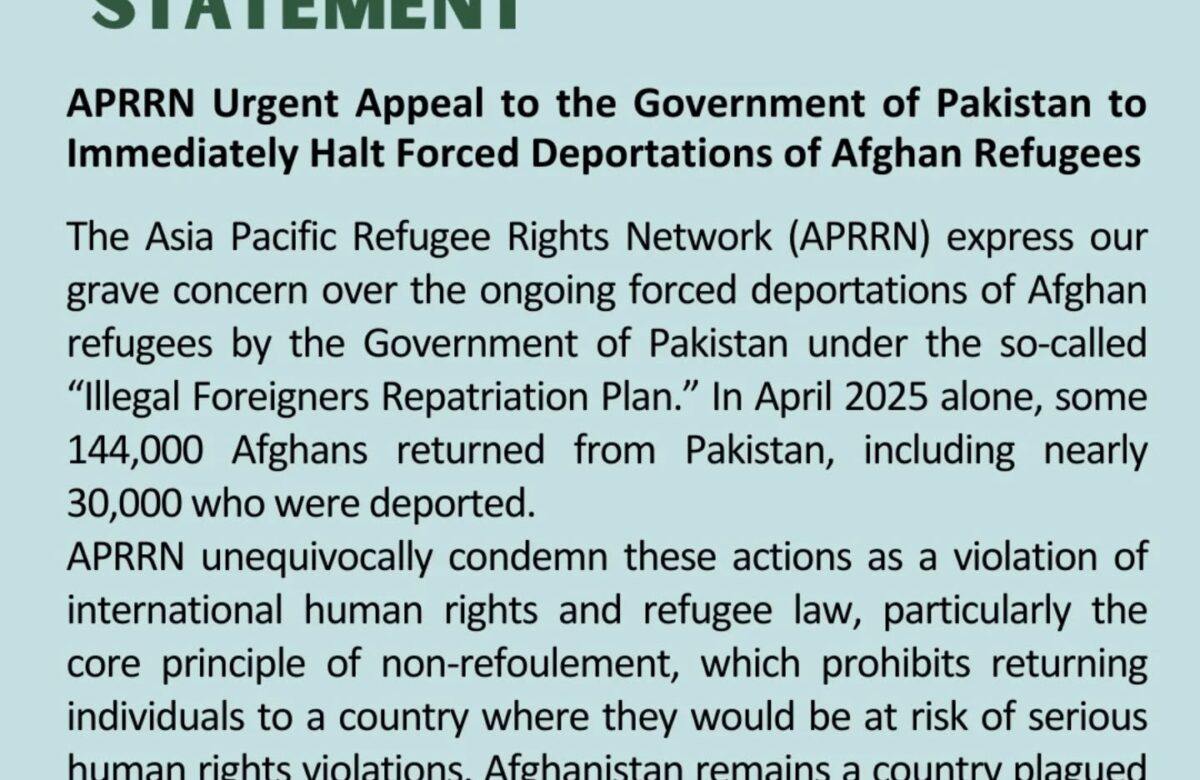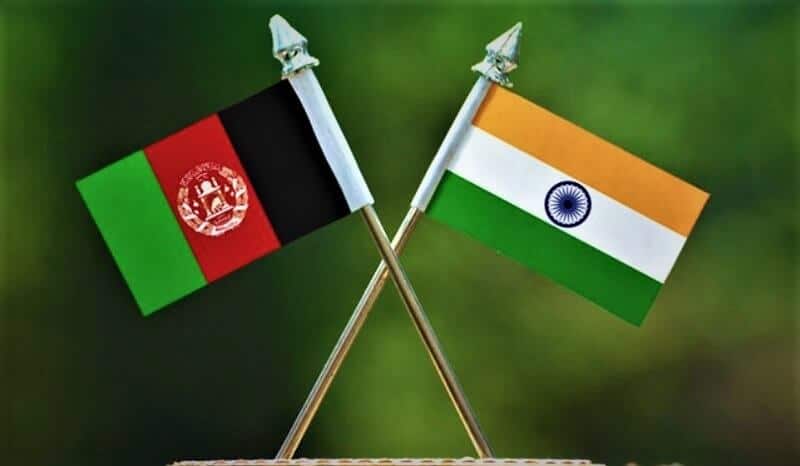
Taliban pressures Germany for more diplomatic control
طالبان آلمان را برای کنترل دیپلماتیک بیشتر تحت فشار قرار می دهد
در زمانی که برلین خواستار افزایش اخراج ها به افغانستان است، طالبان تلاش می کند تا کنترل بیشتری بر نمایندگی دیپلماتیک کابل در آلمان اعمال کند. ظاهرا برلین این اقدام را پذیرفته است.
در اواخر جولای، طالبان علناً اعلام کرد که تنها پنج نمایندگی دیپلماتیک افغانستان در اروپا را مشروع به رسمیت میشناسد: سفارتهای این کشور در هلند، اسپانیا، بلغارستان و جمهوری چک، و همچنین یک کنسولگری – در مونیخ.
ذبیح الله مجاهد، سخنگوی طالبان در مصاحبه با دویچه وله گفت: “این نمایندگی های دیپلماتیک دستورات افغانستان را دنبال می کنند و کشور را در خارج از کشور نمایندگی می کنند. ما به کار آنها اطمینان داریم و این فعالیت ها به طور شفاف انجام می شود.” وی افزود: آنها پاسخگو هستند و دستورات ما را اجرا می کنند.
واضح است: اکثر نمایندگان دیپلماتیک افغانستان در اروپا پس از بازپس گیری قدرت در سال 2021 از طالبان فاصله گرفتند. آنها دیگر از کابل کمک مالی دریافت نکردند و گزارش های منظمی را به وزارت امور خارجه طالبان ارسال نکردند. با این حال، در سه سال گذشته، طالبان با عملیات نمایندگیهای دیپلماتیک افغانستان مخالفت نکرد و به آنها اجازه داد تا وظایف کنسولی مانند تمدید پاسپورت، ویزا و سایر اسناد را برای حدود 420000 افغان ساکن آلمان انجام دهند.
طالبان به رسمیت شناختن سفارت افغانستان در برلین و کنسولگری آن در بن را پس گرفتند که هر دو تمایلی به همکاری با آنها نداشتند. بنابراین، این نمایندگیها دیگر نمیتوانند اسناد معتبر در افغانستان صادر کنند و بزرگترین منبع درآمد خود را از دست بدهند و وضعیت دیپلماتیک خود را کمتر از همیشه قطعی کنند.
با این حال، تجارت در کنسولگری مونیخ، که به نظر می رسد مستقیماً از دستورات کابل پیروی می کند، در حال رونق است. هیچ دیپلمات افغان در برلین یا مونیخ حاضر به گفتگو با دویچه وله در مورد این وضعیت نشدند.
وزارت خارجه در برلین به تصمیم طالبان مبنی بر محدود کردن فعالیت کنسولی در مونیخ با “اطلاعیه رسمی” خطاب به “وزارت خارجه موقت” در کابل واکنش نشان داد. برلین از “بحث های فنی” با دولت بالفعل افغانستان صحبت کرده است. DW یک نسخه از سند مورد نظر را در اختیار دارد. به نوشته این روزنامه، وزارت خارجه آلمان این واقعیت را پذیرفته است که اکنون نمایندگی افغانستان در مونیخ تمامی مسئولیت های کنسولی افغان ها در آلمان را بر عهده گرفته است.
وینفرید کلوث، استاد حقوق در دانشگاه هال ویتنبرگ آلمان گفت که بر اساس قوانین بشردوستانه بین المللی، برلین نمی تواند در مورد تصمیم طالبان انجام دهد. کلوث به دویچه وله گفت که این واقعیت که آلمان اعتراض نکرده است، “بیان عملگرایی سیاسی” است و افزود: “منافع آلمان این است که اطمینان حاصل کند که کنسولگری باقی می ماند که در آن موارد خاصی مانند صدور ویزا و پاسپورت برای اخراج هنوز امکان پذیر است. “
تنها نکتهای که برلین تاکنون در مورد کابل مخالفت کرده است، اصرار طالبان بر این است که کنسولگری مونیخ نه تنها به افغانها در آلمان، بلکه به شهروندان افغان در سراسر اروپا خدمات ارائه میدهد. برلین توضیح داد که چنین اقدامی نقض کنوانسیون ۱۹۶۱ وین در مورد روابط دیپلماتیک است. در نهایت، مخالفت های برلین صرفاً نمادین است، زیرا هیچ کس در دولت هیچ راهی برای پیگیری این موضوع ندارد که آیا افغان هایی که در کنسولگری مونیخ حاضر می شوند از آلمان هستند یا از جاهای دیگر.
Taliban pressures Germany for more diplomatic control
At a time when Berlin is calling for increased deportations to Afghanistan, the Taliban is attempting to exert more control over Kabul’s diplomatic mission in Germany. Berlin has apparently accepted the move.
In late July, the Taliban publicly announced that it only recognized five Afghan diplomatic missions in Europe as legitimate: its embassies in the Netherlands, Spain, Bulgaria and the Czech Republic, as well as a consulate — in Munich.
“These diplomatic missions follow Afghanistan’s orders and represent the country abroad. We have confidence in their work and these activities are carried out transparently,” Taliban spokesman Zabihullah Mujahid said in an interview with DW. “They are accountable and carry out our orders,” he added.
To be clear: most of Afghanistan’s diplomatic representatives in Europe distanced themselves from the Taliban after they took back power in 2021. They no longer received financing from Kabul, nor did they send regular reports back to the Taliban’s Foreign Affairs Ministry. Still, for the last three years, the Taliban did not object to the operations by Afghanistan diplomatic missions and allowed them to carry out consular duties such as extending passports, visas and other documents to the roughly 420,000 Afghans living in Germany.
The Taliban have withdrawn their recognition of Afghanistan’s embassy in Berlin and consulate in Bonn, both of which were unwilling to cooperate with them. Therefore, these missions can no longer issue documents which are valid in Afghanistan, losing their largest source of income and making their diplomatic status less certain than ever.
Business at the Munich consulate, however, which appears to directly follow Kabul’s orders, is booming. No Afghan diplomats in Berlin or Munich were willing to speak with DW about the situation.
The Foreign Ministry in Berlin reacted to the Taliban’s decision to restrict consular activity to Munich with a “formal notification” addressed to the “acting Foreign Ministry” in Kabul. Berlin has spoken of “technical discussions” with Afghanistan’s de facto government. DW is in possession of a copy of the document in question. According to the paper, the German Foreign Ministry has accepted the fact that Afghanistan’s mission in Munich has now taken over all consular responsibility for Afghans in Germany.
According to international humanitarian law there is little Berlin can do about the Taliban’s decision, said Winfried Kluth, a law professor at Germany’s University of Halle-Wittenberg. Kluth told DW the fact that Germany has not protested is an “expression of political pragmatism,” adding, “Germany’s interest is to ensure that there remains a consulate where certain things are still possible, for instance, the issuance of visas and passports for deportations.”
The only point in which Berlin has so far contradicted Kabul is in the Taliban’s insistence that the Munich consulate will not only provide services to Afghans in Germany but Afghan citizens across the whole of Europe. Berlin explained that such a move would be in violation of the 1961 Vienna Convention on Diplomatic Relations. Ultimately, Berlin’s objections are merely symbolic, as no one in the government has any way of keeping track of whether Afghans appearing at the Munich consulate are from Germany or elsewhere.
Source
- Tags
- Oceania



